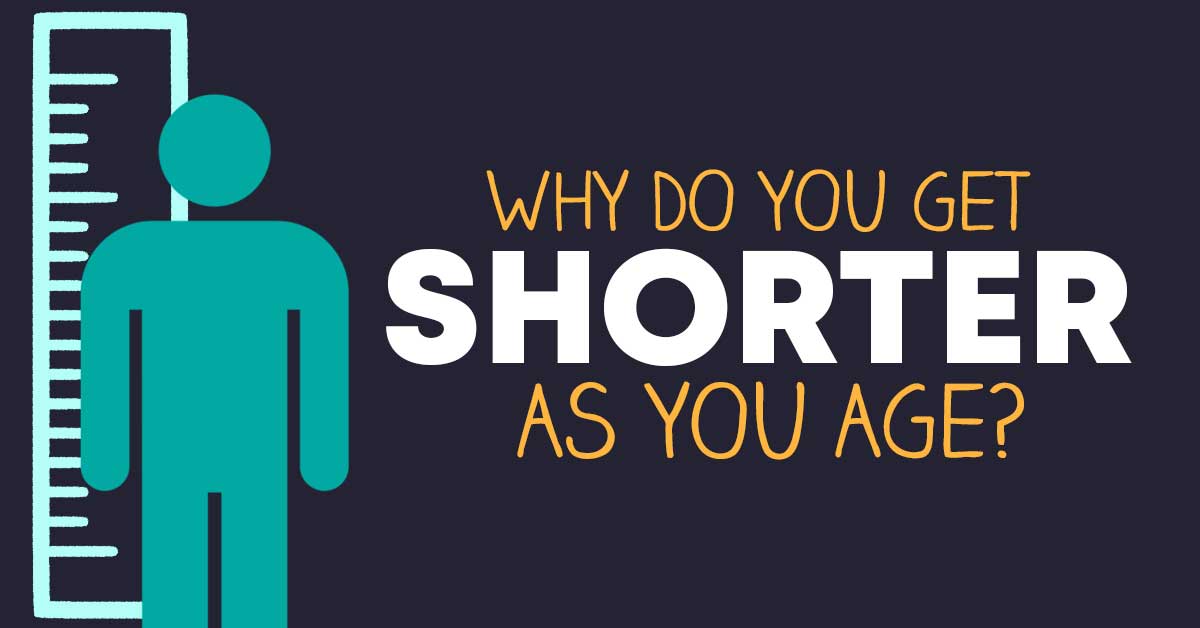Our body undergoes many changes as we age, among them is “shrinking” a bit. While many people consider this a normal part of aging, it is avoidable to a degree. The reasoning behind all of this may not be what you think.
How Much Shorter do we get?
University of Arkansas Medical Science reports this shrinking can begin as early as age 30 in some men. By age 70, the average man will lose an inch of height, while the average woman will lose two inches by the same age. As early as age 80, you may lose another inch.
Why do we Become Shorter as we Age?
As we age the cartilage between our joints gets worn out and compresses. This compression in turn directly correlates to a shorter stature, which is why losing up to an inch by age 70 can be normal. If you find yourself losing more than an inch, or having done so well before age 70, osteoporosis may be to blame.
Over 50 million Americans are estimated to have osteoporosis, a disease that weakens your bones and increases your risk of injury. Osteoporosis is among the most common reasons someone will get shorter as they age.
Eating a diet that includes adequate calcium and a lifestyle that includes physical activity can decrease your risk of developing osteoporosis and/or losing height.
What Nutrients are Crucial to Bone Health
Calcium and vitamin D are very important for bone health.
Dairy products are a prominent source of calcium (think cheese, milk, yogurt, and more). If you follow a vegan diet, there are non-dairy sources of calcium including seeds, leafy green vegetables, or almonds (including almond milk). There are also fortified foods that have had calcium added – however you must spread your calcium intake out throughout the day.
The best source of vitamin D is an easy one… the sun! While oily fish, red meat, and egg yolks all contain vitamin D, simple exposure to sunlight remains the best source. This can prove somewhat difficult in the cold Minnesota winters when the sun is only up for a limited amount of time and the cold weather is a deterrent to going outside. As a result, some people will elect to take a vitamin D supplement in the winter to subsidize this need.
Keep Up With Your Exercise
Exercise is strenuous, and as a result, you may be inclined to think it will increase your risk of bone damage. Instead, exercise helps strengthen your bones. However, it is important that you do not overdo it. Listen to your body so as to not injure yourself while exercising.


